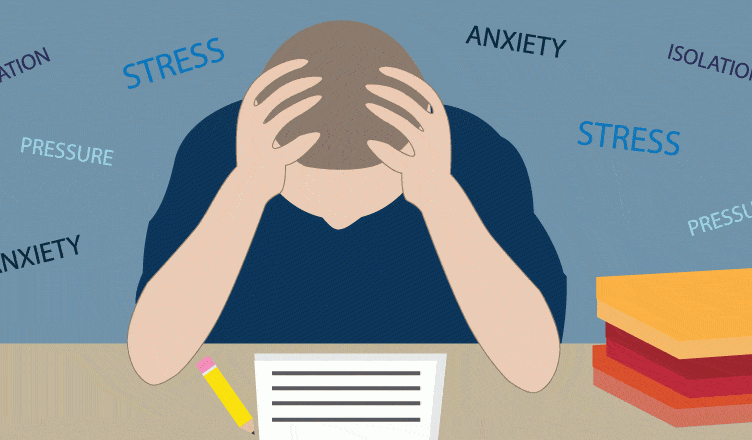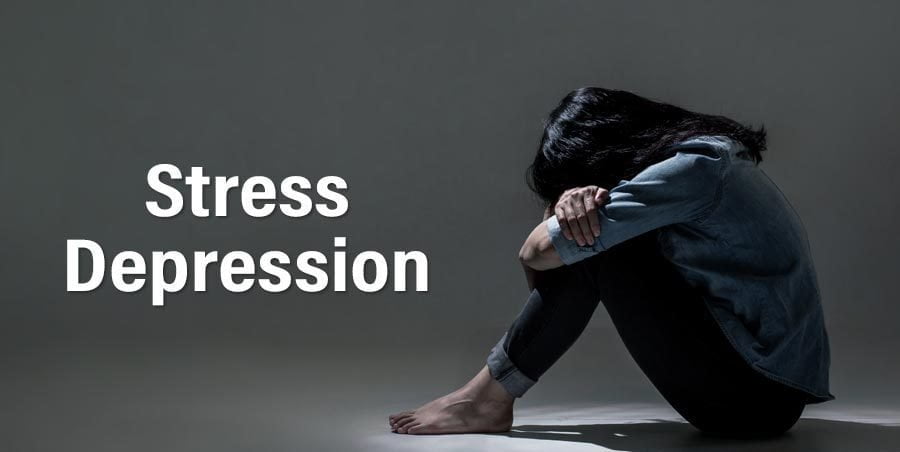The Stress-Anxiety Connection: Unraveling the Link
The impact of stress on our mental health cannot be overlooked, as it plays a significant role in the development and exacerbation of anxiety and depression. However, understanding stress and its relationship to these conditions opens the door to effective coping mechanisms that can help us navigate the challenges and reclaim our well-being. In this article, we will explore the role of stress in anxiety and depression and delve into practical coping strategies that empower us to better manage and alleviate their effects.


Stress and anxiety share a deep-rooted connection that often fuels a cycle of negative emotions and experiences. In this section, we will embark on a journey to unravel the intricate relationship between stress and anxiety, gaining a deeper understanding of how chronic stress can contribute to the development of anxiety disorders. By exploring the physiological and psychological mechanisms at play, we can shed light on the impact of stress on our nervous system, neurotransmitters, and cognitive processes.
At a physiological level, stress triggers the release of stress hormones such as cortisol, which can have profound effects on our body and mind. Prolonged exposure to high levels of cortisol can disrupt the delicate balance of neurotransmitters in our brain, affecting mood regulation and increasing the likelihood of experiencing anxiety symptoms. Additionally, chronic stress can impair the functioning of our nervous system, leading to heightened sensitivity to stressors and a heightened state of alertness, both of which contribute to anxiety.
Psychologically, the experience of stress can distort our perception of potential threats and trigger a cascade of anxious thoughts and worries. Over time, this pattern can reinforce anxiety and make it more challenging to break free from the grip of stress. Furthermore, stress can compromise our cognitive processes, impairing our ability to think, concentrate, and make rational decisions, all of which can contribute to feelings of anxiety and overwhelm.
By unraveling the connection between stress and anxiety, we gain valuable insights into the importance of effectively managing stress as a means to alleviate anxiety symptoms and promote a greater sense of calm and well-being. When we proactively address and reduce stress levels through healthy coping strategies such as relaxation techniques, exercise, and self-care practices, we can restore balance to our nervous system, regulate neurotransmitter function, and enhance our cognitive resilience.
It is important to remember that each individual’s experience with stress and anxiety is unique, and what works for one person may not work for another. By understanding the stress-anxiety connection and exploring a variety of stress management techniques, individuals can discover the strategies that resonate with them. With time, practice, and support, it is possible to break free from the grip of chronic stress, alleviate anxiety symptoms, and cultivate a greater sense of calm and well-being in our daily lives.
Stress and Depression: Breaking the Downward Spiral


When it comes to the relationship between stress and depression, there exists a complex interplay that can significantly impact our mental well-being. In this section, we will delve into how stress can contribute to the development and progression of depression, as well as exacerbate existing depressive symptoms. Chronic stress triggers a cascade of neurochemical and hormonal changes within our bodies, which can disrupt the delicate balance of mood regulation, motivation, and overall emotional well-being. The prolonged activation of stress responses, such as the release of cortisol, can lead to alterations in brain chemistry, affecting neurotransmitters like serotonin and dopamine that play a vital role in mood regulation. As a result, individuals may experience a decrease in motivation, feelings of sadness or hopelessness, and a loss of interest in previously enjoyed activities. Understanding this intricate relationship between stress and depression is crucial in breaking the downward spiral that often occurs. By identifying effective coping strategies, we can foster resilience, promote mental wellness, and develop a toolkit to manage stress and its impact on our emotional state. Through practices such as mindfulness, self-care, therapy, and support from loved ones, we can interrupt the cycle of stress and depression, paving the way for healing, growth, and a brighter future.
Effective Coping Mechanisms: Building Resilience in the Face of Stress


While we may not be able to eliminate stress, we have the power to develop effective coping mechanisms that help us navigate its challenges and reduce its impact on our mental health. This section will explore a range of evidence-based coping strategies that can be incorporated into our daily lives, empowering us to build resilience and promote emotional well-being.
One powerful coping mechanism is mindfulness, which involves paying attention to the present moment without judgment. By practicing mindfulness, we can cultivate a greater sense of awareness and calm, allowing us to respond to stressors more skillfully. Incorporating relaxation techniques such as deep breathing exercises, progressive muscle relaxation, or guided imagery can also help to relieve tension and promote relaxation, counteracting the effects of stress on our minds and body.
Exercise is an effective stress-reducer and mood enhancer. Engaging in regular physical activity releases endorphins, our body’s natural feel-good chemicals, which can boost our mood and alleviate symptoms of anxiety and depression. Finding an exercise routine that suits our preferences and fits into our schedule is key to reaping the benefits of physical activity.
Social support is another essential aspect of effective coping. Sharing our thoughts, feelings, and concerns with trusted friends, family members, or support groups can provide a sense of validation, comfort, and perspective. Building and nurturing positive relationships can offer a valuable support network during challenging times, reducing the sense of isolation and promoting a sense of belonging.
In addition to these strategies, adopting a healthy lifestyle can significantly impact our ability to cope with stress. Eating a balanced diet, getting sufficient sleep, and managing our time effectively can contribute to our overall well-being and help us better manage stress. Prioritizing self-care activities that bring us joy and relaxation, such as hobbies, creative pursuits, or spending time in nature, can also be rejuvenating and serve as an outlet for stress.
By incorporating these evidence-based coping mechanisms into our daily lives, we can build resilience in the face of stress, reduce anxiety and depression symptoms, and enhance our overall quality of life. It is important to remember that everyone’s journey is unique, and it may take time to find the coping strategies that work best for us. Being patient and kind to ourselves throughout this process is crucial. Together, we can develop the tools and skills to navigate stress effectively and promote our emotional well-being.
Seeking Professional Help: The Importance of Support


Seeking professional help is a crucial step in managing stress, anxiety, and depression. When these conditions become overwhelming and begin to interfere with daily life, it’s important to reach out to mental health professionals who are trained to provide the necessary support and guidance. In this section, we will emphasize the significance of seeking help and explore the various treatment options available. Therapy, such as cognitive-behavioral therapy (CBT) or interpersonal therapy (IPT), can be highly effective in helping individuals develop coping strategies, challenge negative thought patterns, and regain a sense of control. Medication, when appropriate, may also be prescribed to alleviate symptoms and restore balance. Additionally, we will highlight the benefits of a comprehensive and personalized approach to managing stress-related mental health conditions, which may involve a combination of therapy, medication, lifestyle changes, and self-care practices. Recognizing that taking the first step towards seeking support can be challenging, we will guide how to find the right resources and professionals who can offer the necessary guidance, therapy, and support throughout the healing journey. Remember, seeking professional help is a sign of strength and a vital part of the path toward healing and recovery.
Coping with Anxiety and Depression
Understanding the role of stress in anxiety and depression opens the door to effective coping mechanisms that can help us navigate these challenges and regain control of our mental well-being. By exploring the stress-anxiety and stress-depression connections, adopting evidence-based coping strategies, and seeking professional help when needed, we can build resilience, reduce the impact of stress on our mental health, and foster emotional well-being. Remember, you are not alone, and there is support available. Together, we can overcome the challenges of stress and reclaim a life of balance, peace, and joy.

